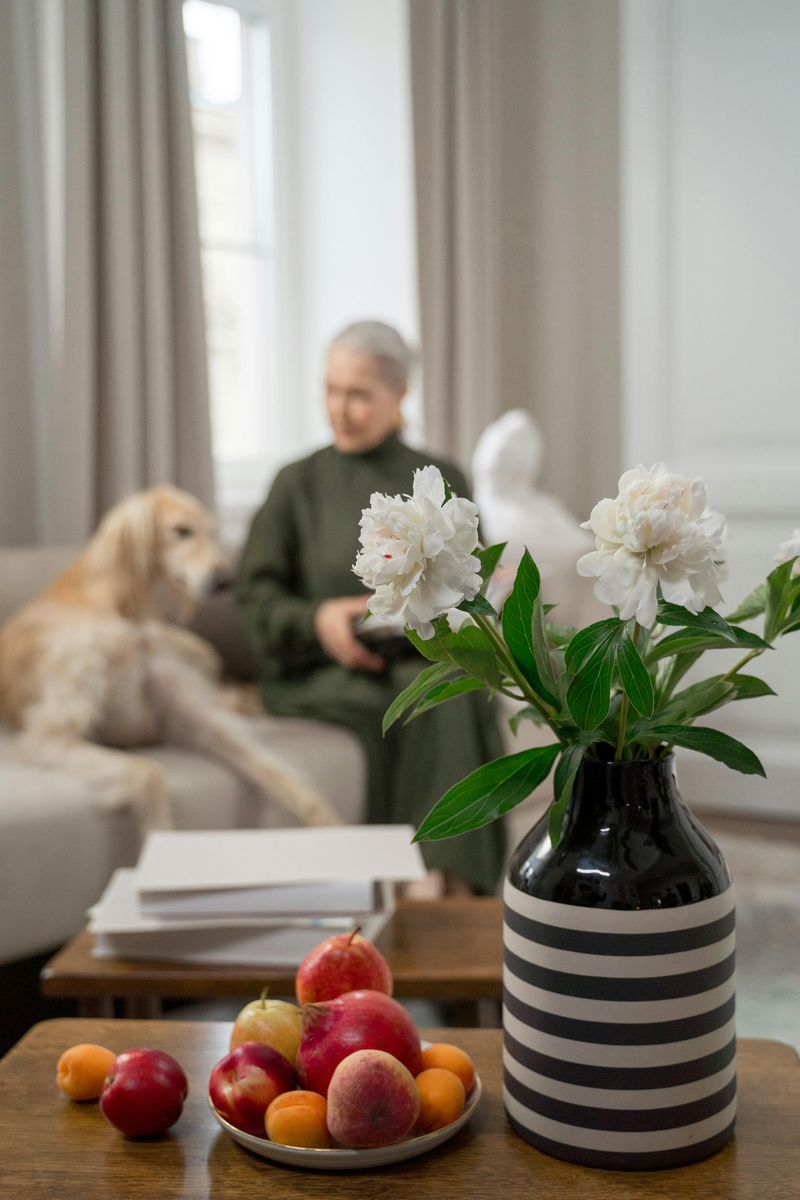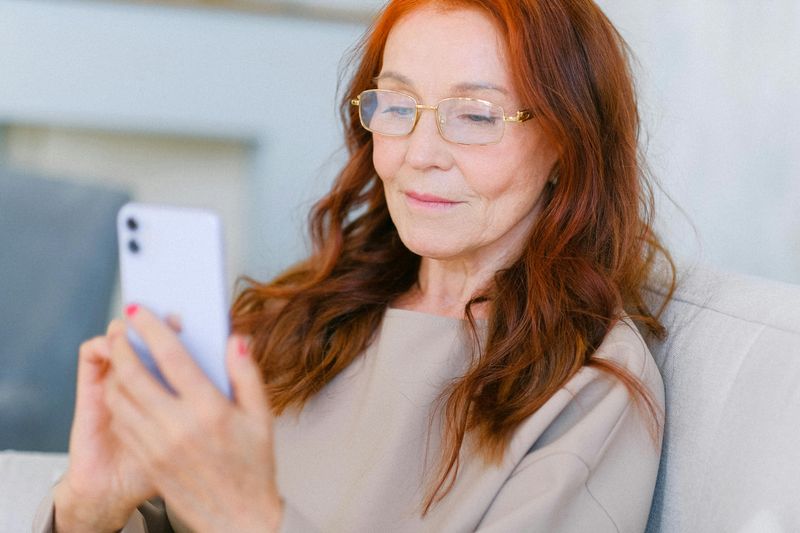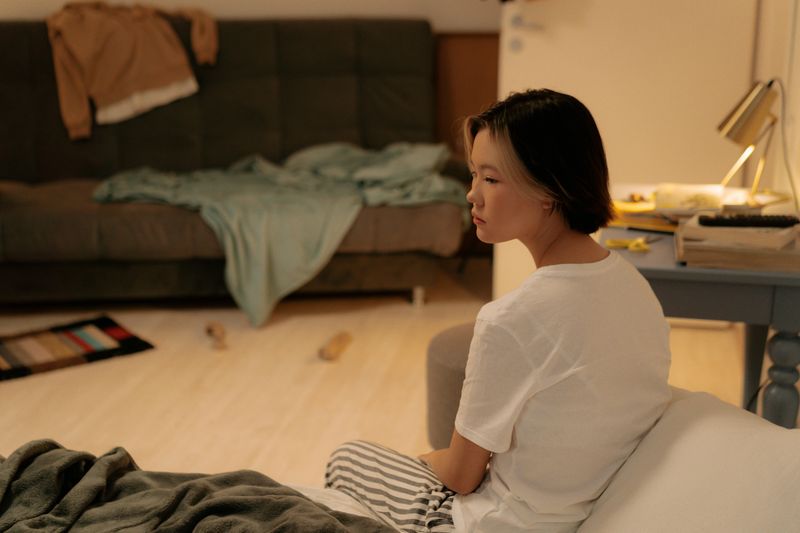13 Clear Signs a Wife Isn’t Attracted to Her Husband Anymore

Marriage requires constant nurturing to keep the spark alive. When attraction fades, it often happens gradually, with subtle changes that can be easy to miss. Understanding these warning signs early might help couples address underlying issues before the emotional distance becomes too great.
1. She spends more time alone

The living room sits empty while she retreats to another space in the house. Shared evenings watching movies or talking about the day have been replaced by solo activities behind closed doors.
This growing preference for solitude often happens gradually. What starts as occasional alone time evolves into a pattern of separation, creating an invisible wall between partners.
When togetherness feels more like an obligation than a joy, emotional disconnection has taken root. This withdrawal isn’t always about needing space—it’s sometimes about avoiding the uncomfortable reality that the attraction has dimmed.
2. She keeps herself busy

Suddenly, her calendar overflows with activities that don’t include him. Garden club meetings, overtime at work, and lengthy phone calls with friends become convenient barriers to one-on-one time.
This busyness serves a purpose beyond productivity. It creates a buffer zone that minimizes opportunities for intimacy or meaningful connection.
Notice how she might enthusiastically describe plans that take her away from home. The energy once directed toward the relationship now powers external pursuits, leaving little emotional availability for her husband. This shift in priorities speaks volumes about where her heart truly wants to be.
3. She is more critical than kind

Remember when she used to laugh at his jokes? Now those same jokes receive eye rolls or sharp comments. Her words carry a new edge, cutting rather than connecting.
Small irritations that once seemed insignificant now trigger disproportionate reactions. The way he chews, his driving style, or how he tells stories—suddenly everything becomes worthy of criticism.
This shift from appreciation to fault-finding reflects deeper emotional changes. Behind the criticism often lies resentment or disappointment. When positive feelings fade, the mind naturally focuses on flaws instead of strengths, creating a cycle that further damages attraction.
4. She acts indifferent

“How was your day?” once sparked genuine conversation. Now her responses are automatic—”fine” or “good”—without follow-up questions or real engagement.
Emotional indifference manifests in subtle ways. She might scroll through her phone while he shares an important story or forget details about his work presentation that he mentioned several times.
This lack of curiosity isn’t just distraction—it’s disconnection. When someone stops being interested in your daily experiences, they’ve stopped investing in the relationship. The mental and emotional energy required to truly care has been redirected elsewhere, signaling a fundamental shift in her feelings.
5. She is glued to her phone

Her phone has become a constant companion—more present in her hands than her wedding ring. Dinner conversations compete with notification sounds and scrolling thumbs.
This digital barrier creates emotional distance in real time. While physically present, her attention lives elsewhere, finding more engagement in social media, games, or messaging than in face-to-face interaction.
The phone becomes both escape and shield. Notice how quickly it appears during moments that might otherwise lead to meaningful conversation or intimacy. This pattern of digital distraction often masks a deeper unwillingness to connect, revealing her preference for shallow engagement over authentic vulnerability with her partner.
6. She compares him to other men

“Sarah’s husband always brings her flowers” or “My coworker’s partner planned such a thoughtful anniversary.” These comparisons might seem innocent but actually reveal dissatisfaction with the current relationship.
Sometimes the comparisons become more direct. Comments about a friend’s husband’s fitness routine or a movie star’s appearance carry subtle messages about perceived shortcomings.
These comparisons wound deeply because they communicate that he’s being measured against others and falling short. Rather than addressing specific needs directly, comparison becomes a passive-aggressive way of expressing disappointment. This behavior signals she’s mentally shopping for alternatives rather than appreciating what she has.
7. She stops being affectionate

Physical touch fades first—those casual hand squeezes or shoulder touches that once happened naturally throughout the day. Morning kisses become quick pecks or disappear entirely.
Body language speaks volumes during this shift. She might subtly increase physical space between them on the couch or stiffen when he initiates a hug. These reactions often happen unconsciously but reveal her true comfort level.
This withdrawal of physical affection creates a touch drought in the relationship. The absence of these small, connecting moments leaves both partners feeling increasingly isolated. Physical intimacy operates as an emotional barometer—when it consistently reads “low,” there’s almost certainly a storm in the relationship.
8. She doesn’t flirt anymore

Flirtatious energy creates a special current between couples. When it disappears, the relationship loses its playful spark.
Remember those suggestive text messages during workdays or playful winks across the room? Those moments of romantic electricity once signaled her attraction. Their absence creates an emotional flatline.
Healthy marriages maintain elements of courtship long after the wedding. When flirtation fades completely, it suggests she no longer sees her husband as someone to pursue or entice. This isn’t about grand romantic gestures—it’s about the small moments of connection that keep desire alive. Without them, partners become roommates rather than lovers.
9. She invests in other relationships

Her sister calls and suddenly she’s animated and engaged—a stark contrast to her subdued presence with her husband. This energy imbalance reveals where her emotional investments truly lie.
Friend gatherings take priority over couple time. She might extend girls’ nights but cut date nights short, or share intimate details with friends while keeping her husband at arm’s length emotionally.
This shift doesn’t mean these other relationships are inappropriate—they’re simply filling the connection gap. When emotional needs go unmet in marriage, people naturally seek fulfillment elsewhere. The enthusiasm she shows for these outside connections highlights what’s missing at home and signals a significant redirection of her emotional energy.
10. She stops carrying the household load

Caring for shared spaces reflects investment in shared lives. When she stops maintaining areas she previously managed, it signals a deeper withdrawal from the partnership.
Maybe the fridge that was always stocked now sits half-empty. Perhaps the social calendar she maintained has gaps, or holiday traditions she orchestrated are mentioned only at the last minute.
This isn’t about gender roles or division of labor—it’s about the sudden abandonment of responsibilities she once willingly shouldered. When someone stops caring for shared spaces or experiences, they’ve often stopped seeing the relationship as worth their effort. This neglect of household contributions reflects her diminishing stake in the relationship’s future.
11. She focuses on herself

Self-improvement suddenly takes center stage in her life. New classes, fitness routines, or career ambitions emerge with intensity, creating separate life trajectories.
This shift might appear positive on the surface. Growth is healthy—but the concerning element is when these pursuits consistently exclude him or serve as justification for creating distance.
Listen for phrases like “finding myself” or “my journey” that emphasize individuality over partnership. While personal development is valuable, marriage thrives on shared growth. When her self-improvement consistently leads away from the relationship rather than enriching it, she may be preparing emotionally for a future that doesn’t include him.
12. She avoids having real conversations

When emotional intimacy fades, conversation loses its depth. You stop talking about dreams or feelings and start talking only about logistics and to-do lists.
“How was work?” receives a one-word answer. Attempts to discuss relationship concerns get deflected with “Not now” or “I’m tired.” This communication shutdown prevents real connection.
Pay attention to conversation patterns. Does she engage deeply with others but keep exchanges with her husband surface-level? Does she physically leave the room when difficult topics arise? These avoidance behaviors protect her from vulnerability but also prevent authentic connection. The absence of meaningful conversation creates an intimacy vacuum that further damages attraction.
13. She starts keeping secrets

What was once open becomes guarded: her phone now has a passcode, her tone shifts when he walks in, and her stories grow less detailed and more deflective.
Financial secrecy often emerges too. New purchases arrive without discussion, or money moves between accounts without explanation.
These behaviors signal a retreat from financial partnership. Not all secrets involve infidelity, but all represent emotional withdrawal. When someone starts compartmentalizing their life, they’re creating separate spaces where their partner isn’t welcome. This information gatekeeping reflects a fundamental shift from seeing themselves as part of a unit to operating as an individual with private territories their partner cannot access.

Comments
Loading…